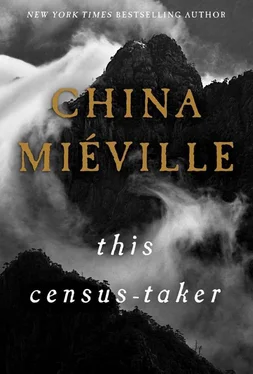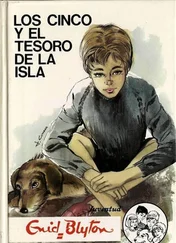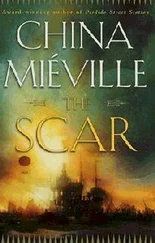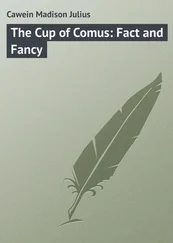When he met the man who became his line manager the boy was a child and naïve but not quite ignorant, at least in letters, because of his mother’s lessons.
Sometimes she would bring home from the town new things to read. Catalogues for grain and agricultural machines, and instructions for cleaning metals, and almanacs, or what was left of them when those pages making incorrect predictions and offering unhelpful advice had been torn out. All these in the formal voice of the language I grew up speaking, in which I don’t write this. A few folded cuttings from foreign newspapers — which we occasionally found tucked between pages as bookmarks or secreted in stashes and which were in this language — we ignored.
My mother made slow poems of the words as she read them flatly to show the boy how the letters sounded. When later the man who would become his manager met the boy he improved him by giving him endless dull texts and having him sound them out, asking questions about their context.
His manager taught him that words change with time, by single letters or more, sometimes their whole roots switching — a “y” to an “e” in a name for power, “sun-writing” becomes “light-drawing.” The man eventually gave him this whole other tongue, and he revisited and at last learned from those cuttings about immense foreign wars.
The boy always suspected his father could read and write, at least some, and that suspicion was to grow. Back in the first days of his curiosity the boy found cards tucked between boards in the outhouse, little pornographic pictures with cramped handwriting on the back, but then he was too young to read them and he was never to know if his father wrote them or received them or simply found them and liked the images or if they were his father’s at all. The old camera had demanded a long exposure, so the hand-tinted women and men crawled over each other in stilted and mannered lust. The boy put them back in their crevice and later they were gone.
He didn’t know what if anything it was his mother got from his father’s company. They lived together and passed each other every day and spoke a little to each other when they had to without viciousness or rancor but, so far as the boy saw and so far as he ever remembered, without pleasure or interest. From his father there was always a distant desperation.
His mother seemed always to know, and not to like it, when the boy’s father killed things. It roused in her a cold and anxious distaste. That boy was afraid of her, but at those rare times of his father’s blank-faced interventions he wanted the hurried and uncomfortable caretaking she offered.
—
After I saw him kill the dog I was more afraid of being alone with my father than I’d ever been of anything. But over the course of months every fear, however strong, ebbs or changes. My father treated me with the same flustered abstraction with which he always had.
Every day he was busy in his workroom. When he came up to the middle floor I would lie on the cold boards of the attic and listen to the murmurs of he and my mother talking. I couldn’t discern their words but I could hear them speaking with a care that sometimes sounded a little like affection.
People might come to order keys. When my father went down to deliver them he always went alone.
When my mother descended, one time in three she might take me.
—
In the center of the town was the bridge. Along its western edge ran black railings on which you could lean to overlook the foliage and rock and hills and the river. On the other side were stone buildings, shored up now with wood and concrete and iron girders. The bridge had been inhabited once but some ordinance had forbidden that practice, broken though it was by the parentless children who squatted collapsing derelicts between the shops.
Houses built on bridges are scandals. A bridge wants to not be. If it could choose its shape, a bridge would be no shape, an unspace to link One-place-town to Another-place-town over a river or a road or a tangle of railway tracks or a quarry, or to attach an island to another island or to the continent from which it strains. The dream of a bridge is of a woman standing at one side of a gorge and stepping out as if her job is to die, but when her foot falls it meets the ground right on the other side. A bridge is just better than no bridge but its horizon is gaplessness, and the fact of itself should still shame it. But someone had built on this bridge, drawn attention to its matter and failure. An arrogance that thrilled me. Where else could those children live?
They were a swaggering crew tolerated if their thieving wasn’t too ostentatious, useful to the shopkeepers for the scutwork they’d sometimes perform.
Our town was a petty hub on the routes of mendicant salespeople, so sometimes you could buy unlikely commodities, vegetables other than the tough ones of the hillside, foreign bibelots, cloth in startling colors. The traveling merchants haggled and drank and showboated stories of what they sold from the backs of their wagons in front of the better houses. There were always small crowds at these performances, sometimes parents whose children looked at me during lulls in the patter. Even my mother would watch the traders’ plays, or would let me: I was always utterly caught up by them, by This Fine Borage or An Auger to Dig my Postholes.
The sellers who knew her treated my mother with a cautious courtesy. When she approached, I silent in the wake of her skirt, they’d greet her carefully and might ask after my father, at which she’d blink and try out expressions and nod and wait. “Tell him thank you for that key he did me,” they might continue.
A few turns east of the travelers’ market, the butchers in the meat quarter sometimes stocked cuts from exotic animals and labeled them not with words but with photographs or hand-drawn pictures. That was how I learned that there were giraffes, from a sepia portrait on a pile of dried haunch meat. Once, one of our stops was at a large unlikely warehouse full of cabinets of salted fish come up from the nearest city, from the coast, wherever it was, and shuddering generators and the iceboxes they powered crammed with the gray corpses of big sea fish. There I, who’d known only the fierce spine-backed fish of the mountain streams and their animalcule prey, came to a sudden stop, slack with awe before a glass tank big enough to contain me, transported at some immense cost for I don’t know what market, full not with me or with any person but of brine and clots of black weed and clenching polyps and huge starfish, sluggishly crawling, feeling their way over tank-bottom stones like mottled hands.
There were few trees in the meat quarter, as if the soil between its stones was too bloody for their prim taste, but elsewhere there were many, stunted to fit and strumming the bowing electric wires with their branches, always dirty from carts and the animals and engines which hauled them venting dung or smoke.
Southeast of where the butchers were, fronting a yard full of engine pieces and oily rags, was an iron fence past which I always hoped my mother would take us, because dangling from its railings was an angle of wood, a section of long-dead tree transfixed by the metal and jutting toward a stub in the flagstones, its own dead roots. There, a tree had once grown up and through the fence, sealing itself around the bars until it had provoked the unfriendliness of the owner and been cut down, leaving that part of itself that couldn’t be extricated. That part I would finger at the join of bark and iron when I walked through where the tree had been.
The children from the bridge were often waiting there, eyeing me. They congregated by the stump and played a game involving motions as strange as those of worship. To me it looked as if they were feeling the missing bark for handholds, as if it were an expertise of town children that they could climb ghost trees.
Читать дальше












